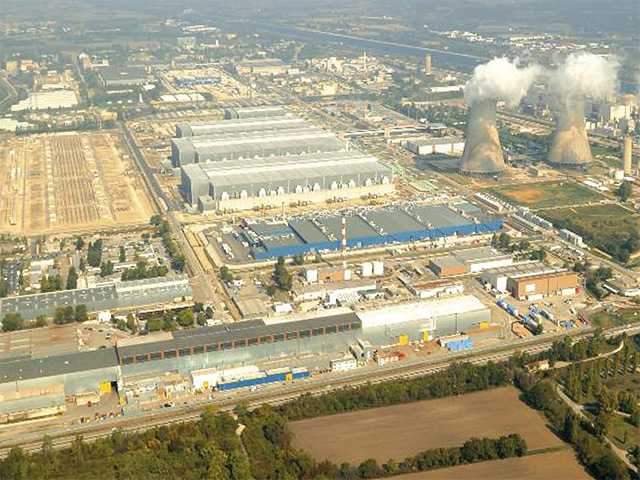
More than 20 Greenpeace activists have been arrested after breaking into a French nuclear power plant, claiming they wanted to expose security flaws and demanding its closure.
Campaigners from the environmental group invaded the EDF plant at Tricastin, in Southern France, to unfurl a banner of French president Francois Hollande saying: “Tricastin, nuclear accident – President of the catastrophe?”
They also projected a video onto the side of the plant, showing a giant crack forming across the building’s facade.
The activists claimed they had reached the walls of two reactors, although EDF denied the protesters had reached any “sensitive areas” and said production was unaffected.
The stunt came just days after Greenpeace activists climbed the Shard tower in London to protest against arctic oil drilling.
“With this action, Greenpeace is asking Francois Hollande to close the Tricastin plant, which is among the five most dangerous in France,” Greenpeace French nuclear spokesman Yannick Rousselet said.
A spokeswoman for EDF denied the activists had reached two of the plant’s reactors and said that 17 of the protesters had already been arrested for unauthorised access.
France’s nuclear safety authority said in a statement that so far the intrusion had had no impact on the plant’s safety.
President Hollande has pledged to cut French nuclear reliance on nuclear energy to 50% of the country’s electricity demand by 2025, and wants to close the country’s oldest plant – at Fessenheim – inside the next four years.
Greenpeace said to honour his promise, Hollande would have to close at least 10 reactors by 2017 and 20 by 2020. The campaign group said this ought to include Tricastin, which was built over 30 years ago.
Meanwhile France will maintain its ban on shale gas exploration in the country, Hollande has confirmed.
The French president said the technique poses too many “risks to groundwater”, and stressed he would not allow fracking during his presidency.
“As long as I am president, there were will be no exploration for shale gas,” Hollande said.
“We can see some consequences in the United States.”
The ban was put in place in 2011 over fears of environmental impact of such operations, specifically air and water pollution involved in fracking.
Recommended for you
